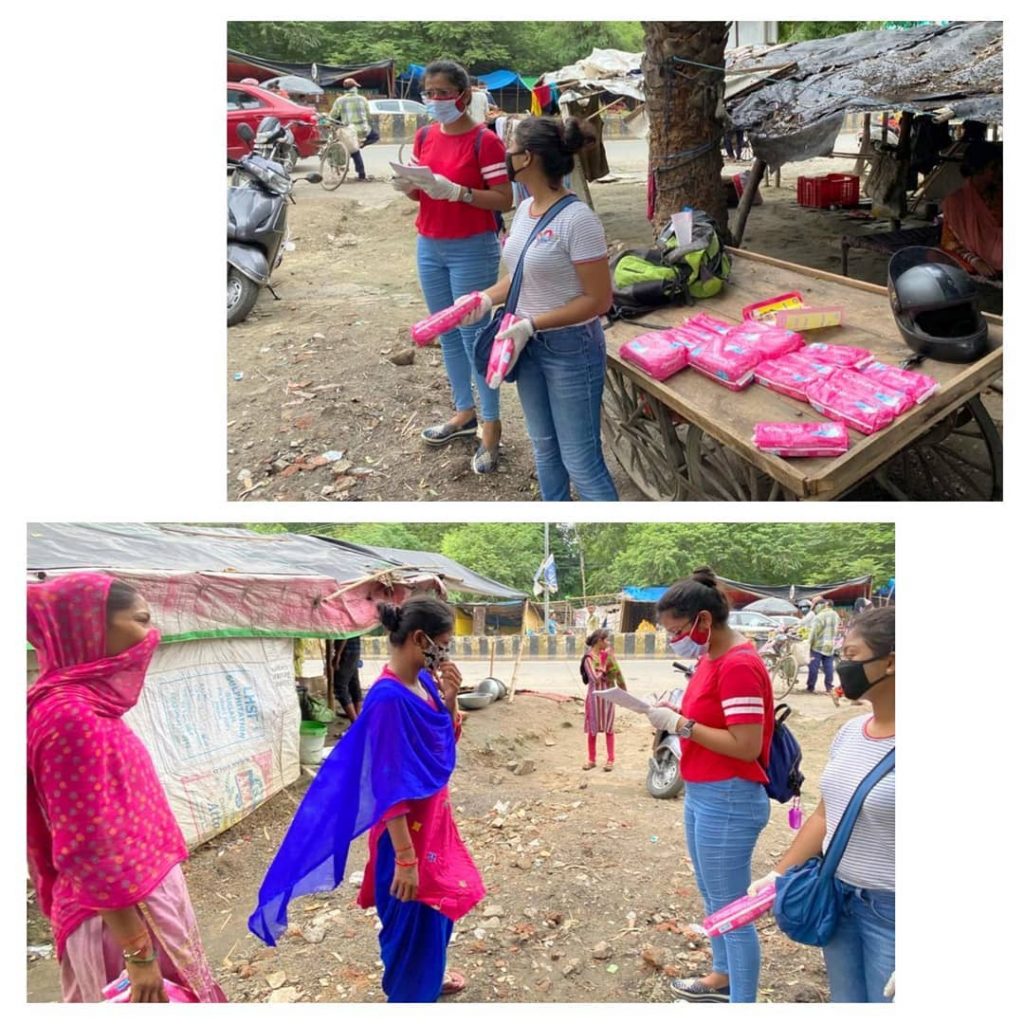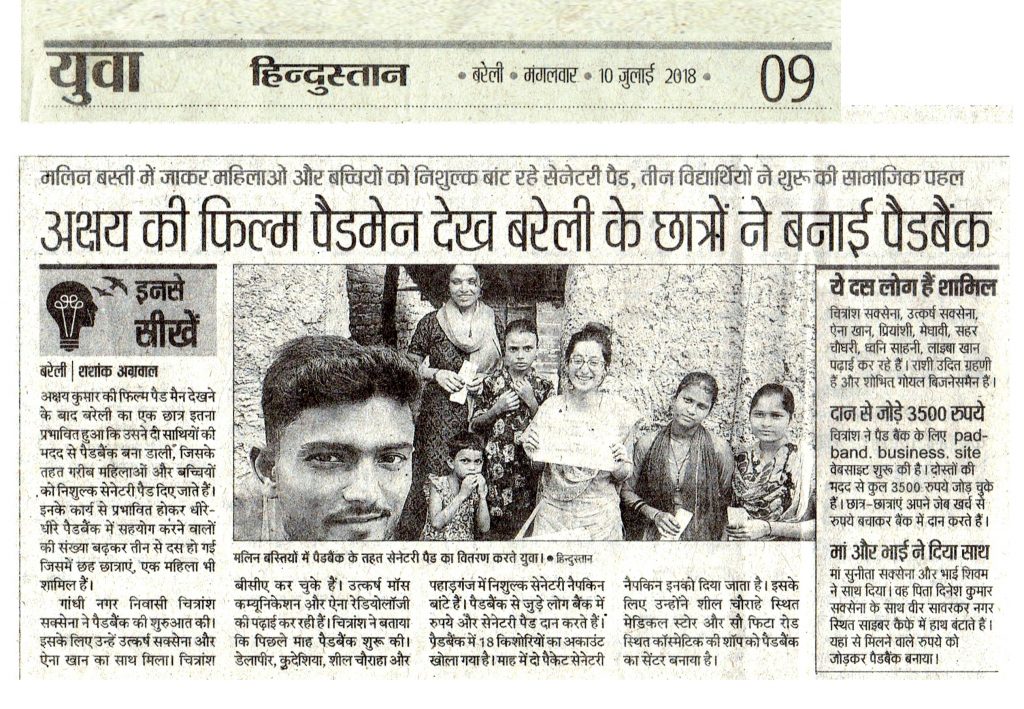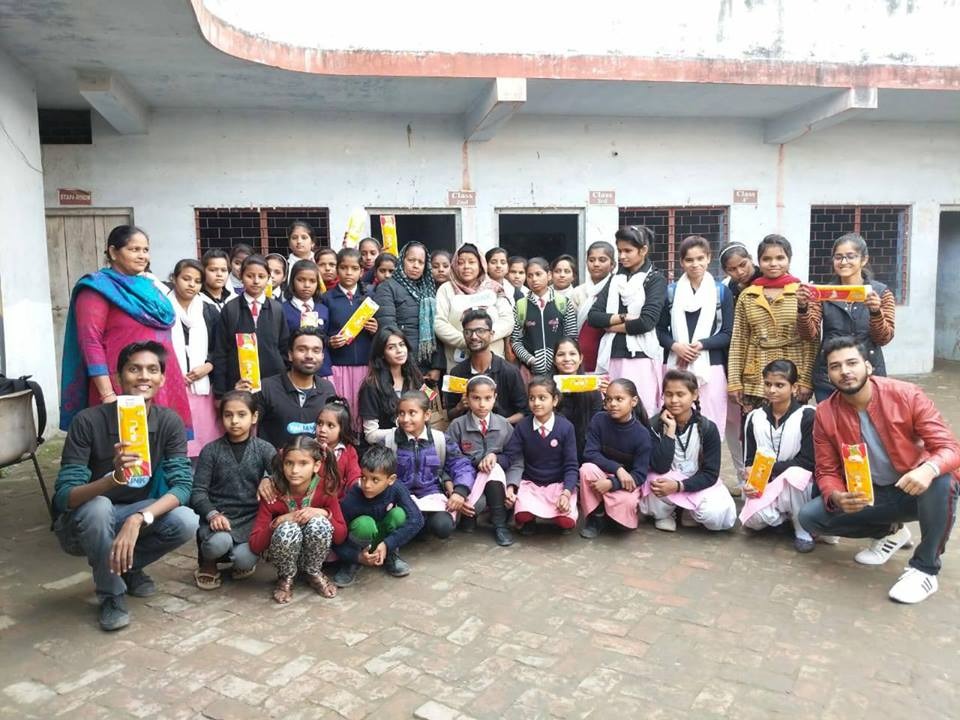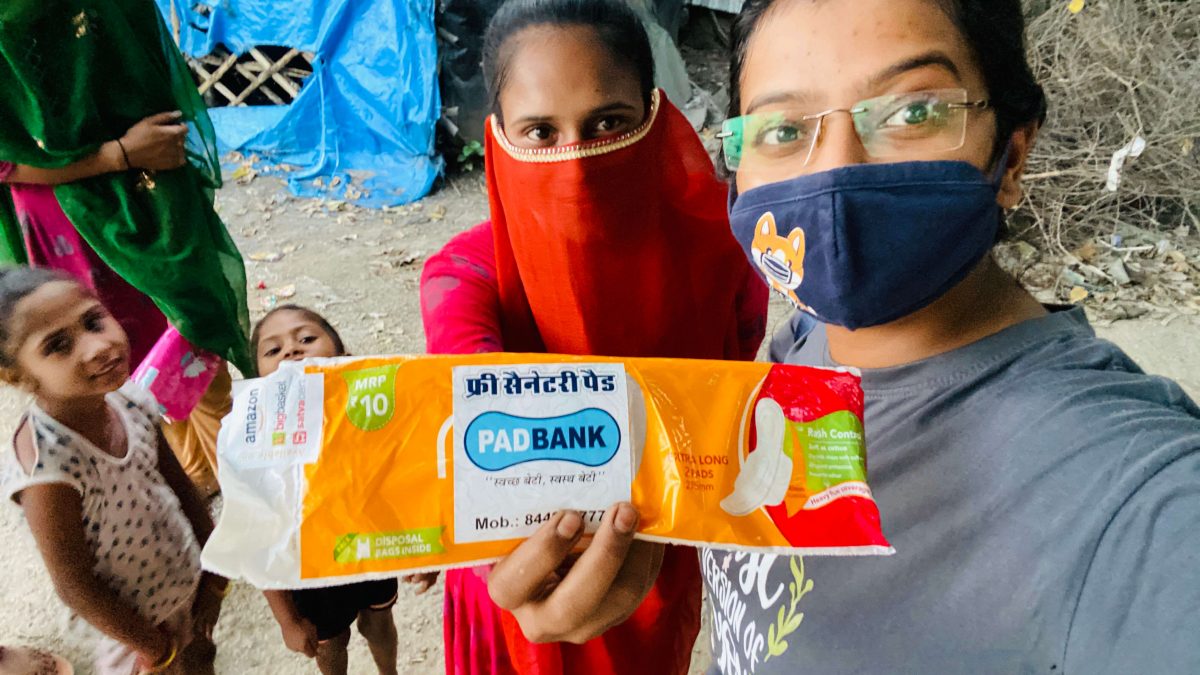Not that we have Superman to come and save the world in reality. We all know that Avengers is a work of fiction, but how we wish they were true. Actually, we have superheroes, seemingly simple and normal, but those who create magic with their deeds and are changing the world in their own little ways. This is one such story, about Chitransh Saxena from Bareilly who has been working for the past few years to normalise menstruation and the taboo around it. He works on the ground, organises workshops, distributes sanitary napkins, follows up on people, and is working towards a better society. He also educates people about the disorders like PCOD, PCOS and helps girls who are affected by it, to get professional advice and help. Read the inspiring conversation with Chitransh.
Q. How did your journey in social work start? Was Padman an inspiration behind all this?
Ans. I was into social work, even before Padman came out. I always wanted to do something for the community and give back to society. So, then I thought of educating people about the issue of sanitation and went ahead with that.
Once we were going on a trip as a team when one of my female friends canceled her plans because of periods. That is when it hit me that there has been a bigger problem with this. I went back and read up on this a lot. And, came to the decision that this is something I will be doing.
Q. How do you talk to people and convince them that this is not taboo?
Ans. Initially, when I was reading up, I also attended a lot of conferences. And, at most of them, they were like we are backward and consider this as a taboo. But, I feel this is more about lack of awareness. Later, I got to know this has been in the Vedas as well, where there mentions and talks about menstruation. So, usually, I tell people about this with the context and tell them how history also talks about this. Then give my science facts and people do understand this and are open to listening then.

Q. How have the responses from people changed over the years?
Ans. There is much difference between the day I started to now. During the first distribution, the girls were not even comfortable listening to me and have a conversation. I had to send one of my female friends to talk to them. But, now they have opened up and there is a lot more awareness than before. Now, we have girls calling me for pads, for information they need to know more on and more.
Q. How did the idea of having an organisation set came up? Tell us the story behind, My Pad Bank.
Ans. From the very first day, I wanted to do it with a name, and have its own social presence. I wanted it to be organized and more secure. That is where PadBank came about. And, then I gave a passbook as well, to track their periods monthly.
I always wanted to do it in an organized way and did not want to have unequal distribution, but wanted to have a proper facility for everyone who was enrolled. Like, it should not be that someone gets more while someone has nothing. So, we came up with the passbook idea. With this, I will also know that this person has not received it this month and this person has. We also keep track of when they will get their next cycle to make sure they have a bank of sanitary napkins before that.

Q. This actually involves a lot of money and effort. How is the financial aspect managed?
Ans. We usually use the savings of the team. I use up my savings and sometimes pool money. We also have a donation link on social media. Moreover, a lot of people give free pads for charity. When they know that this is for a noble cause they don’t usually charge. Some organizations even give it for free or at manufacturing prices.
Q. Has there been help from other organizations and more?
Ans. Yes, there have quite a few organizations that have reached out and continuously collaborate. There is this Niine Sanitary Napkins who have donated to us. There are manufacturers who give us pads at just manufacturing costs. Niine also made sure that they installed a PadBank near bus stands where medical shops are kind of not accessible at all.
With the collaboration of one of the organizations, we created a 22-inch napkin that also got accepted in the Limca Book of records. In 2018, I also created a simple period tracker to help girls in underprivileged areas to track their periods. The tracker had a set of beads of different colors like white and red which would be used to track the days. This got quite an amount of recognition and was pretty successful.
Q. You have always said, that boys should be involved in this conversation too. How do you go about doing this?
Ans. Yes, of course, it is important. At schools, they teach this to boys and girls separately. Which should not be the case. I have done workshops in only boys’ schools as well, so initially, they would say that this is not for boys, go to a girl’s school and all. But, slowly this has changed. They have become more aware. And, we also make the boys pledge that now that they know better they will not make fun of girls about this and be supportive.

Q. What was your idea behind the pad and dad initiative?
Ans. The reason behind this initiative was that the girls across ages who were coming up for volunteering were not able to communicate at home. Even when I told my parents at home they were very supportive. So, I just wanted people to have a conversation at home about this. I asked them to click a picture with a pad and their father. Many girls were not fine with it, but there were some heartwarming responses too. Some girls did say that their fathers were already aware and took it in the right way.
In the end, Chitransh’s message is to everyone out there is that you need to speak up and work towards normalising. And, I would say it is the girls who can do this. They should speak about this at home, ask your fathers and brothers to buy you pads when you need them. Take your initiative, own yourself. Start talking about periods at home. Because it is going to start with you.
He also urges people to contact him and he will guide them to start an initiative at their place. Because, whatever he tries, his reach is limited to a region. So, to bring a bigger impact you need to have many people doing the same. So, reach out to Chitransh, via his social media handles below:

